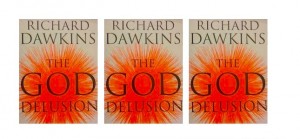
However, this is just scraping the surface of what The God Delusion delivers, and if a book can be judged by the number of folded down corners to mark an important page then The God Delusion would outrank the majority, if not all, other tomes. While the overall premise of the book, namely to discredit the truth and benefit of religion, is slightly muddied by the unnecessary documentation of Dawkins’ own moral beliefs, it is non-the-less a well informed, critical and spellbindingly interesting investigation of the holes in the belief of a personal god.
The book evaluates the many arguments in favour of religion and does an effective job of calling in question each and every one. However, it is perhaps most effective at criticising the premise that belief in itself is the key to heaven; surely a good atheist would be more welcome in heaven than a good christian man, because the atheist was good for the sake of being good, while the christian man could have been motivated to goodness simply by the promise of entry into heaven.
The God Delusion is well thought out, thorough and thought provoking. It’s never going to have an answer to our origins beyond the singularity prospect that modern physics points towards, but it is very good at critically marginalising the probability of a personal god and the premise that without religion we would be amoral.
Book review: 4/5


